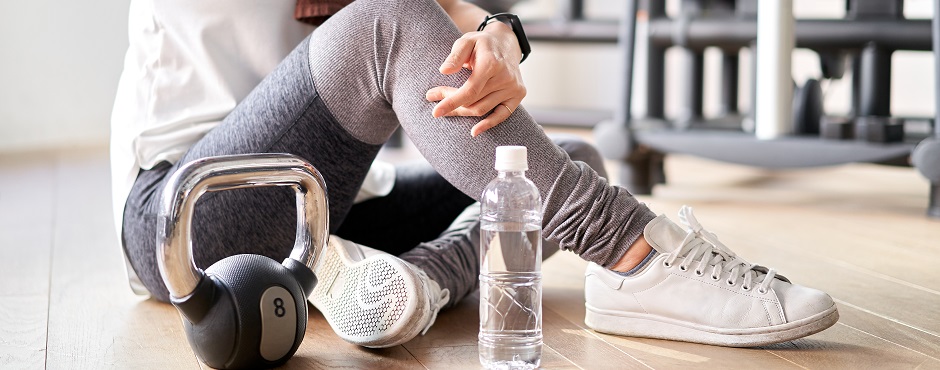
The Importance of Muscle Hydration
Leave a CommentWater is one of the essential nutrients we can consume and vital to every cell in our body. The human body is made up of 60% water, with muscles up to 79% water. As you can see, hydration is essential for the human body, muscles included. As such, it is necessary to maintain proper hydration for increased muscle function and response.
How Does Dehydration Impact Performance?
Acute dehydration is the first sign your body gives you that you are dehydrated to a point where it is affecting you physically. Acute dehydration shows feelings of thirst, dry mouth/lips/eyes, feeling tired, headache, and dry skin. Acute dehydration can impact muscle performance by decreased strength-endurance and fatigue perception, meaning performance will decline due to dehydration before thirst is felt. Thirst will trigger once 2% of bodyweight has been lost.2
Prolonged dehydration is a little more troublesome as it means your body is adapting to the decreased consumption of fluids and will not respond as well as acute dehydration. Symptoms include dry or flaky skin, constipation, frequent headaches, constant fatigue, and ongoing muscle weakness. Prolonged dehydration can have functional declines associated with it, especially in older individuals with less water content than their younger counterparts.3 The link to frailty due to dehydration has led to the need to identify early signs of dehydration in the elderly to prevent the cascade of detrimental effects that will follow dehydration.3 Due to the damaging effects of dehydration, even acute dehydration, can have on muscle performance and function, the risk of injuries will increase in a dehydrated muscle, especially when studies have shown that there can be no associated decrease in cognitive performance and assessment of one’s situation.2
How Should You Properly Hydrate?
The best way to combat muscle dehydration is to be sure you are regularly drinking water throughout the day. General recommendations for fluid intake for men are roughly 100oz, and for women is 74oz. Those values are likely to go up if a person is in a warmer and/or humid environment or performing intense activities such as working out, playing outside, or completing highly demanding physical jobs. Typically, a person can get enough electrolytes from their nutritional sources, but athletes and individuals who have a higher sodium content in their sweat might want to think about adding some sodium supplementation to their fluid intake during bouts of higher-intensity activities. A pinch of salt can be added to your water in these situations (you should not be able to taste the salt), but this can vary from person to person based on previously stated factors.
For student-athletes, first and foremost, stay on top of your hydration. The worst thing you can do regarding hydration is trying to chase it. Once competition situations start, you will already be behind. Making sure your urine has a light yellow color before competition is an easy way to assess hydration status. As stated before, student-athletes may need to supplement sodium into their diet based on the amount of sweating they go through. A pinch per bottle of water will typically be sufficient. Do not wait until you are thirsty to start drinking water. Athletes can weigh themselves before and after competition. For every pound of weight lost, the athlete should consume approximately 3 cups of water.5
Pain or Injury? Athletico Can Help
Remember to stay hydrated in the situations mentioned above to maintain proper muscle health and performance. This can help you to avoid the risk of injury while you are exercising. Should you experience pain or an injury, reach out to your local Athletico to schedule a free assessment today with one of our movement experts. Free Assessments are available in-clinic and virtually through our Telehealth platform.
Physical therapy is usually the thing you are told to do after medication, x-rays or surgery. The best way to fix your pain is to start where you normally finish – with physical therapy at Athletico.
The Athletico blog is an educational resource written by Athletico employees. Athletico bloggers are licensed professionals who abide by the code of ethics outlined by their respective professional associations. The content published in blog posts represents the opinion of the individual author based on their expertise and experience. The content provided in this blog is for informational purposes only, does not constitute medical advice and should not be relied on for making personal health decisions.
References:
1. The Water in You: Water and the Human Body, www.usgs.gov/special-topic/water-science-school/science/water-you-water-and-human-body.
2. Barley OR, Chapman DW, Blazevich AJ, Abbiss CR. Acute Dehydration Impairs Endurance Without Modulating Neuromuscular Function. Front Physiol. 2018;9:1562. Published 2018 Nov 2. doi:10.3389/fphys.2018.01562
3. Lorenzo I, Serra-Prat M, Yébenes JC. The Role of Water Homeostasis in Muscle Function and Frailty: A Review. Nutrients. 2019;11(8):1857. Published 2019 Aug 9. doi:10.3390/nu11081857
4. Meinders AJ, Meinders AE. Hoeveel water moeten we eigenlijk drinken? [How much water do we really need to drink?]. Ned Tijdschr Geneeskd. 2010;154:A1757. Dutch. PMID: 20356431.
5. “Fluids and Hydration.” U.S. Anti-Doping Agency (USADA), 23 June 2021, www.usada.org/athletes/substances/nutrition/fluids-and-hydration/.
